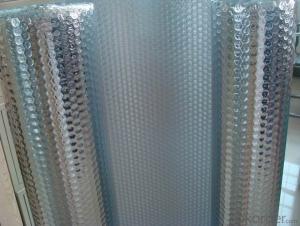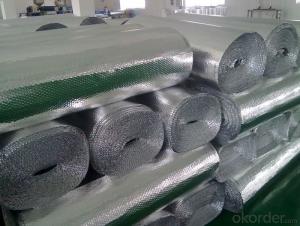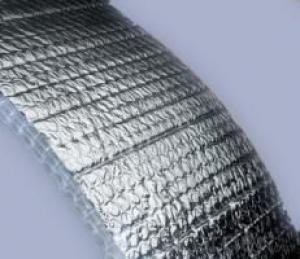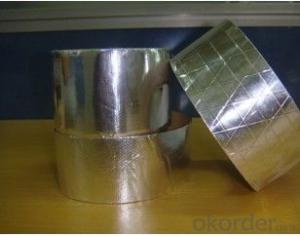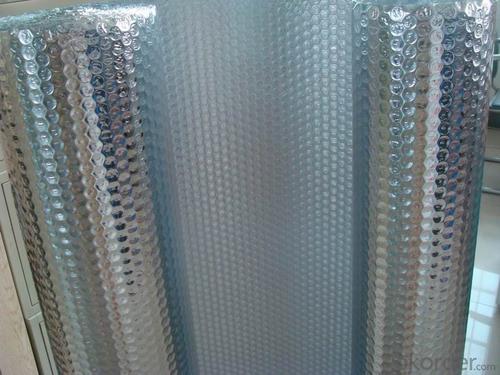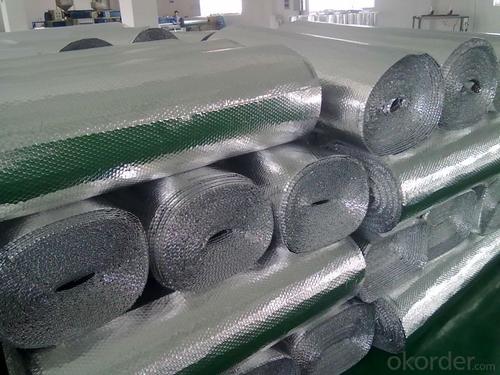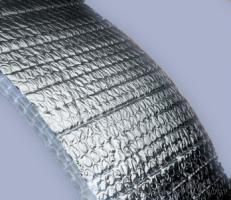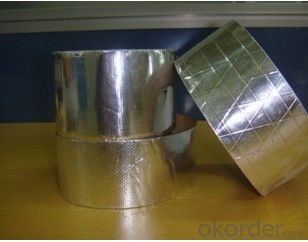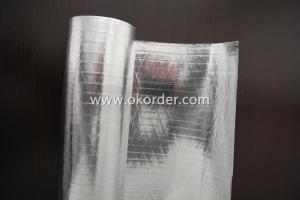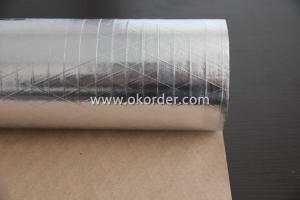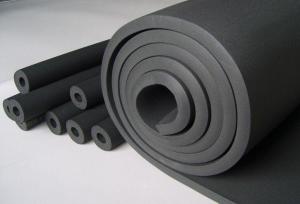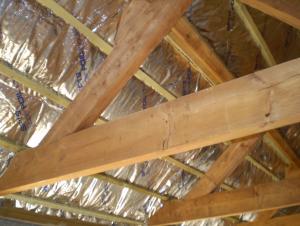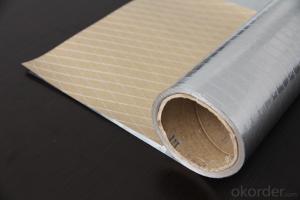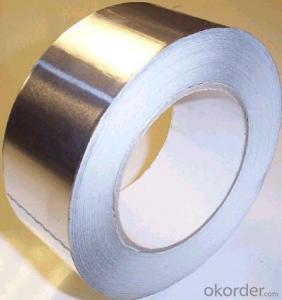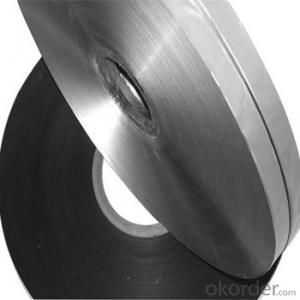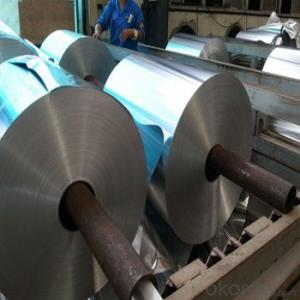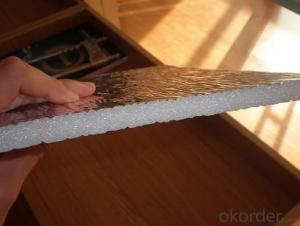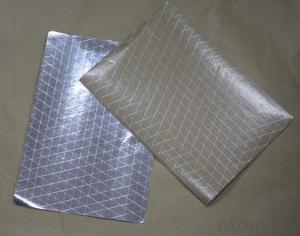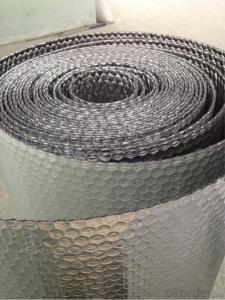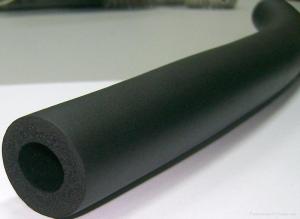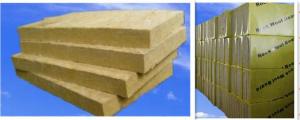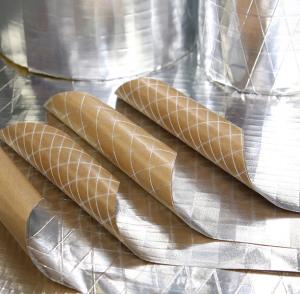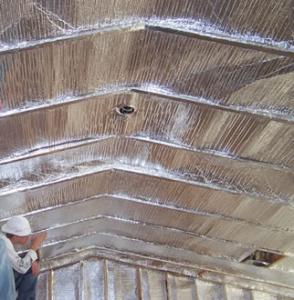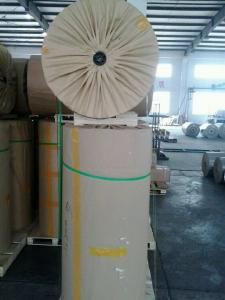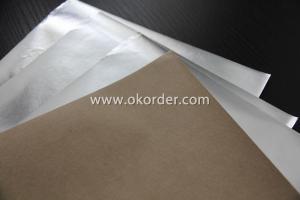Aluminum Foil Facing Flexible Ducts with AL+LDPE Insulation and Bubble Foil Mylar Film for Heat Seal
- Loading Port:
- Tianjin
- Payment Terms:
- TT OR LC
- Min Order Qty:
- 12 m²
- Supply Capability:
- 30000 m²/month
OKorder Service Pledge
OKorder Financial Service
You Might Also Like
).Raw material for Aluminium: 1235-0, 8011
Raw material for PET: New PET ,OPP is also available
2).Different kinds:
| structure | Normal laminated thickness | Width | Length | Color | ID | OD | Packin |
| AL+PET+LDPE | 7umAlu+15umPet+3umGlue | 6mm-1000mm as your required | 500m-7000m | Silver blue bronze black others | 2"or3" | 250mm-600mm | polybag caron pallet
|
| 9umAlu+12umPet+3umGlue | |||||||
| AL+PET+AL | 6umAlu+15umPet+6umAlu+6umGlue | ||||||
| PET+AL+PET | 15umPet+7umAlu+15umPet | ||||||
| AL+PET+EAA | 7umAL+15umPET+25umEAA+6umglue | ||||||
| AL+PET+AL+EAA | 7umAlu+15umPET+7umAlu+25umEAA+9umglue | ||||||
| PET+PET | 15umPet+15umPet +3umGlue | ||||||
| Polyester Tape | 15um,18um |
3).Certificaton: SGS
4).Specifications:
The following is the single side aluminium mylar tape specifications for you take reference:
Description: Al+PET Tape(AL/myler Tape) | ||||
Composition:aluminium foil and polyester film | ||||
Structure | Thickness(um) | Proportion(g/m2) | Elongation(%) | Strength(N/15mm) |
6um AL/12um PET | 20 | 36 | 30 | 2.7 |
7um AL/15um PET | 25 | 43 | 35 | 2.7 |
7um AL/20um PET | 30 | 50 | 35 | 3 |
9um AL/12um PET | 25 | 45 | 30 | 2.7 |
9um AL/15um PET | 30 | 49 | 35 | 3 |
9um AL/20um PET | 35 | 55 | 35 | 3 |
9um AL/25um PET | 38 | 62 | 35 | 4 |
12um AL/12um PET | 25 | 53 | 20 | 2 |
12um AL/15um PET | 30 | 57 | 20 | 3 |
12um AL/20um PET | 35 | 63 | 30 | 4 |
15um AL/15um PET | 30 | 65 | 20 | 3 |
25um AL/15um PET | 45 | 92 | 20 | 3 |
30um AL/25um PET | 60 | 119 | 20 | 3 |
30um AL/30um PET | 65 | 126 | 20 | 5 |
40um AL/30um PET | 75 | 153 | 20 | 5 |
40um AL/38um PET | 80 | 163 | 20 | 5 |
50um AL/25um PET | 90 | 173 | 20 | 5 |
50um AL/50um PET | 100 | 207 | 35 | 6 |
Above values refer to our current production and must be intended as average values | ||||
The reference is not including all specification. | ||||
- Q: The user is asking if they can reuse their old aluminum foil facing to create new ones once it becomes worn out.
- <p>No, you cannot create new aluminum foil facings from old, worn-out ones. Aluminum foil facings are typically made from a specific type of aluminum that is bonded to a substrate. Once it wears out, the aluminum layer is compromised and cannot be reused to make new facings. Recycling old aluminum foil is the best option to reduce waste and conserve resources. You can recycle aluminum foil, which will then be processed and turned into new aluminum products.</p>
- Q: This question asks for various purposes that aluminum foil facing can be used for, other than its conventional use.
- <p>Aluminum foil facing has several alternative uses. It can be used as a reflective surface to enhance the heat distribution in grilling or baking. It can also serve as a protective barrier in gardening to deter pests or as a makeshift sled for sliding on snow. Additionally, it can be used to clean stubborn stains or as a shield to protect surfaces from paint splatters during home improvement projects. Some people even use it for crafting or DIY projects due to its malleability and reflective properties.</p>
- Q: The user is asking if they can repurpose their old aluminum foil facing to create a new pot holder or tea cozy.
- <p>Yes, you can repurpose your old aluminum foil facing to make a new pot holder or tea cozy. Aluminum foil is a good insulator and can be easily cut and shaped to fit your needs. Simply cut the foil to the desired size, fold or wrap it around the pot or tea cozy, and secure it with a rubber band or string. For a more decorative touch, you can cover the foil with fabric or use colorful foil. Always ensure that the aluminum foil does not come into direct contact with the heat source to avoid any potential fire hazards.</p>
- Q: What are some safer alternatives to aluminum for food packaging?
- <p>Yes, there are several alternative materials for food packaging that are considered safer than aluminum. These include biodegradable materials like PLA (polylactic acid), which is derived from renewable resources like corn starch. Paper-based packaging is also a popular choice, often coated with wax or other materials for added protection. Additionally, glass containers are a non-toxic and reusable option. Some companies are exploring innovative solutions like mushroom-based packaging and edible packaging made from seaweed. These alternatives aim to reduce environmental impact while maintaining food safety and quality.</p>
- Q: What are some alternative uses for old aluminum foil that are not commonly known?
- <p>Yes, there are several creative uses for old aluminum foil. You can use it to clean stubborn grime from pots and pans, as it can effectively scrape off burnt-on food without scratching surfaces. Aluminum foil can also be used to sharpen scissors by cutting through it multiple times. It can be fashioned into a fire starter for camping, as it retains sparks and heat well. Additionally, it can be used to create a makeshift funnel for pouring liquids or to wrap around stems of plants to protect them from frost. These are just a few of the many potential uses for old aluminum foil.</p>
- Q: What are the potential health risks associated with cooking food using aluminum foil?
- <p>Cooking with aluminum foil can potentially lead to the leaching of aluminum into the food, which may have health implications. While the body naturally eliminates small amounts of aluminum, excessive intake can be harmful. Aluminum has been linked to neurological disorders, including Alzheimer's disease, although the connection is not definitively proven. It's also important to note that the amount of aluminum that leaches into food during cooking is generally considered to be low. However, for those concerned about aluminum exposure, it's advisable to minimize the use of aluminum foil in cooking, especially for acidic foods which can increase the rate of aluminum leaching.</p>
- Q: What are the various levels or types of aluminum foil facing materials used in construction or insulation?
- <p>Aluminum foil facing is used in various applications such as insulation and construction. The different grades include: 1) Plain Aluminum Foil Facing, which is a basic type without any additional features. 2) Reinforced Aluminum Foil Facing, which is stronger and more durable, often used for heavy-duty applications. 3) Coated Aluminum Foil Facing, which has a protective coating for enhanced performance. 4) Laminated Aluminum Foil Facing, which combines aluminum with other materials for specific properties. Each grade offers unique benefits depending on the application's requirements.</p>
- Q: Describe the most effective methods for utilizing aluminum foil in cooking.
- <p>Aluminum foil facing can be used effectively in cooking in several ways: 1) As a barrier to prevent food from sticking to the pan or grill, reducing the need for oil or butter. 2) To wrap foods for steaming, which helps retain moisture and flavor. 3) As a cover to keep food warm after cooking or to prevent overcooking. 4) To create packets for cooking fish, vegetables, or other foods en papillote, which steams the food in its own juices. 5) For baking, it can be used to line pans to prevent sticking and to make cleanup easier. 6) Foil can also be shaped into a tent to cover food during the last few minutes of cooking to prevent it from drying out. Always ensure the shiny side of the foil faces inwards when in contact with food to avoid any potential chemical reactions with the food.</p>
- Q: Is it safe to use old aluminum foil for food packaging, considering potential health risks and material degradation?
- <p>Using old aluminum foil for food packaging is not recommended. Over time, aluminum foil can become discolored, thin, or develop pinholes, which can compromise its integrity. These changes can lead to food contamination and the foil's ability to protect food from bacteria or other contaminants. Additionally, old aluminum foil may contain residues from previous uses that could mix with new food items, potentially causing off-flavors or health concerns. It's best to use fresh, clean aluminum foil for food packaging to ensure safety and hygiene.</p>
- Q: Is it possible to recycle aluminum foil with a facing layer? If yes, what is the process involved?
- <p>Yes, aluminum foil facing can be recycled. The process typically involves separating the aluminum from the facing material. This is done by specialized recycling facilities that use methods such as shredding, washing, and magnetic separation to remove impurities. The aluminum is then melted down and repurposed into new products. It's important to check local recycling guidelines, as some facilities may not accept foil with a facing layer due to the difficulty in separation or the presence of non-recyclable components.</p>
Send your message to us
Aluminum Foil Facing Flexible Ducts with AL+LDPE Insulation and Bubble Foil Mylar Film for Heat Seal
- Loading Port:
- Tianjin
- Payment Terms:
- TT OR LC
- Min Order Qty:
- 12 m²
- Supply Capability:
- 30000 m²/month
OKorder Service Pledge
OKorder Financial Service
Similar products
Hot products
Hot Searches
Related keywords
